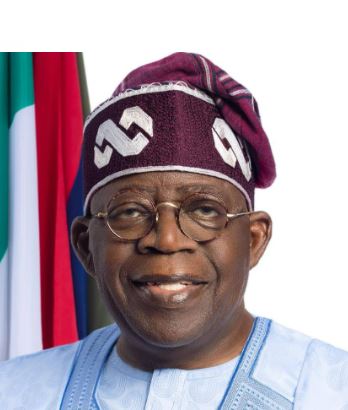The Presidency has said that President Bola Tinubu is not indifferent to the sufferings of the masses but busy taking deliberate steps to reset the nation’s economy.
Special Adviser to the President on Media and Public Communication, Sunday Dare asserted this yesterday in response to a newspaper editorial alleging overwhelming hunger, hardship, and helplessness in the country. He said: “President Bola Ahmed Tinubu is not indifferent to Nigerians’ difficulties.
On the contrary, he is taking deliberate, targeted steps—many already yielding results—to reset our consumption without productivity, opacity without accountability, and policy that served the powerful, not the people.”
On a reference made to the UNICEF prediction that from April 2025 33 million Nigerians, including 16 million children, would face hunger in 2025 Dare said:
“This figure has been widely cited but wrongly interpreted. What was presented was not a UNICEF-specific report but the Cadre Harmonisé Food and Nutrition Insecurity Analysis, jointly prepared by the Federal Government of Nigeria, FAO, WFP, and UNICEF.
It is not a current count, but a worst-case projection for the June–August 2025 lean season, assuming no mitigation actions by government or partners.”
Maintaining that the newspaper has consistently and deliberately misinformed its readers about the government’s policy, Dare said the Tinubu administration had begun to take measures to ensure that the country never got to that situation with over 42,000 metric tons of grains released from federal strategic reserves; 117,000 metric tons under additional procurement; activation of the Food Security Council and emergency nutrition support scaled up in Borno, Yobe, Adamawa, Katsina, Sokoto, and Bauchi states.
“Malnutrition is a serious national concern, but let’s not localise it as a ‘Northern Nigeria’ crisis. Since 2020, COVID has disrupted the global food system, worsened the Russia-Ukraine war, and is now aggravated by conflict in the Middle East,” he said.
He equally asserted that contrary to the newspapers claim: “The naira is not worthless — it has found its level and is strengthening,” explaining further that:
“Since hitting a low of N1,800/$1 in March 2024, the naira has rebounded strongly due to: Increased oil receipts and remittances, restoration of investor confidence, unification of the FX window, reduction of FX backlog by over $4 billion (CBN data, May 2025). As of August 1, 2025, the naira traded around N1,525/$1, a sizable appreciation since its lowest ebb.
Nigeria’s FX reserves are stabilising, and foreign portfolio inflows are picking up after major reforms in the monetary and fiscal space.”
The Presidential spokesman said the government listens to criticisms and welcome suggestions citing the suspension of VAT on food, reducing taxes on drugs and medical equipment, and easing the tax burden on MSMEs, amongst others as part of decisions taken to reflect the wishes of the people.
He said that the government would, beginning from January 2026, commence the implementation of the new tax reforms, adding that: “the President works closely with state governors through the National Economic Council (NEC) to implement immediate local tax reliefs, VAT waivers, and food market stabilisation efforts in each state.”
Acknowledging the suffering in the land, the Presidential spokesman said: “Let’s speak the truth. Yes, Nigerians are belt-tightening, but Nigeria is healing.
The economic surgery undertaken by President Tinubu is not without pain, but it is yielding green shoots.”
Commenting on criticisms of the government policies, Dare declared that: “This administration does not ask for silence in the face of hardship.
It asks only for fairness and a shared commitment to rebuilding this country, not just exaggerating its pain.
This is what President Tinubu expects from all Nigerians and well-wishers of our country.”















